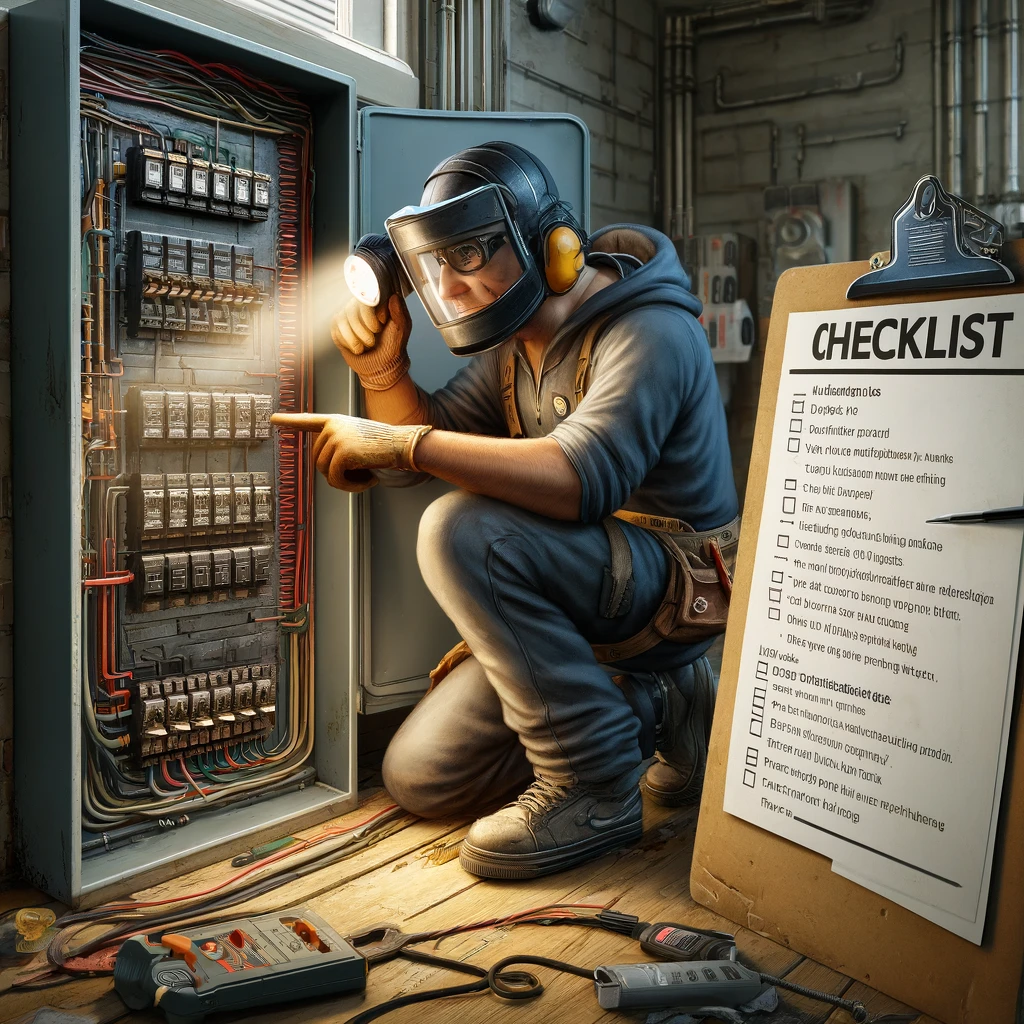
24 HOURS & EMERGENCIES
07301 611 578

Back to Blog
How to Determine if Your Electrical Panel is Outdated: Top Signs and Best Practices for Upgrades
Advice
12th April 2024

In the modern home, an electrical panel acts as the heart of the electrical system, distributing power where it's needed and protecting the home from potential hazards. However, as homes age and electrical demands increase, an outdated electrical panel can not only be inefficient but also dangerous. Recognizing the signs of an outdated electrical panel is crucial for maintaining home safety and efficiency. This comprehensive guide will outline how to identify an outdated electrical panel and the best practices for managing an upgrade, empowering homeowners to take informed steps before considering the call to a professional.
Understanding Your Electrical Panel
Your electrical panel, sometimes referred to as a breaker box, is a critical component of your home's electrical system. It houses circuit breakers, which regulate the flow of electricity throughout your home and protect against dangerous overloads. As technology and electrical standards evolve, older electrical panels may no longer meet current safety or performance requirements, making an upgrade essential.
Signs Your Electrical Panel is Outdated
1. Age of the Panel
Electrical panels are typically designed to last 25-40 years. If your home’s electrical panel has not been updated in over four decades, it's likely outdated. The age of your home can also be a clue; homes built more than 30 years ago might still have the original panel, which could now be considered obsolete.
2. Fuses Instead of Circuit Breakers
Older homes might have a fuse box instead of circuit breakers. Fuse boxes, common in homes built before the 1960s, are outdated and often don't meet the electrical demands of modern appliances and electronics.
3. Frequent Tripping of Circuit Breakers
If your circuit breakers frequently trip, it could indicate that your panel is working beyond its capacity. Modern households typically require more power than what older panels were designed to handle.
4. The Panel is Warm to the Touch or Emits a Burning Smell
An electrical panel should not be warm to the touch or emit any odours. These symptoms can indicate serious problems, such as overloaded circuits or a failing electrical system.
5. Rust or Corrosion on the Panel
Visible signs of rust or corrosion on the panel or circuit breakers can indicate potential safety hazards, including the risk of electrical fires.
Best Practices for Upgrading an Outdated Electrical Panel
1. Consult with a Licensed Electrician
Before making any decisions, consult with a licensed electrician to assess your current electrical panel and determine if an upgrade is necessary. They can provide expert advice tailored to your home's specific needs.
2. Evaluate Your Electrical Needs
Consider the electrical demands of your household, including current and future needs. This assessment will help ensure that your new electrical panel can accommodate additional appliances or technological upgrades.
3. Choose the Right Size Panel
Electrical panels come in different sizes, measured in amperes (amps). Common sizes for residential homes are 100, 200, and 400 amps. Your electrician can recommend the appropriate size based on your home’s electrical demand.
4. Consider Future-Proofing
Opting for a panel with more capacity than you currently need can be a wise choice for future-proofing your home, especially if you plan to add high-powered appliances, an electric vehicle charger, or a home addition.
5. Understand Local Codes and Permits
Electrical upgrades often require permits and inspections to ensure they meet local building codes. Your electrician can handle the necessary paperwork and ensure that the upgrade complies with all regulations.
Conclusion
An outdated electrical panel can pose significant risks and inefficiencies to your home. By recognizing the signs and understanding the steps involved in upgrading, you can ensure your home's electrical system is safe, efficient, and prepared to meet your current and future needs. Remember, working with electricity can be dangerous, and it's best to consult with a professional electrician for any concerns or when planning an upgrade. Empowered with the right knowledge, you can make informed decisions about your home's electrical health before needing to call in experts.
Read More
Explore more articles on the world of Electrics!
2024 Ⓒ Spark Electrics